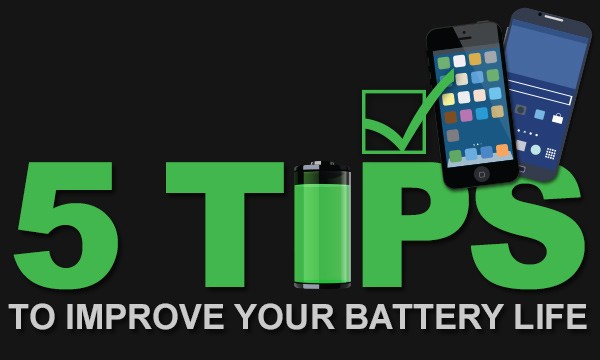The battery performance has been long the weakness of
smartphones, no matter it is an iPhone, Android phone or a
Windows phone, though the battery capacity has been rising up all along. Many people
could have experienced such circumstances: their smartphones are going to die
but they still need the assistance of their phone. Such conditions would happen
especially when you’re on a long train journey or you don’t get a backup
battery. People may want to know how to prolong their phone battery life so as
to make their phones work longer. That’s what this post is talking about. Here I
have collected 5 tips to help you save and boost your phone battery life for
emergency use.
Tip 1: Turn off the
radios you aren't using.
This might be obvious to some, but this is one of the
biggest causes of fast battery drain. Turn off the radios in your phone you
aren't using; even when they are idle they suck power. That means switching off
the WiFi, GPS and Bluetooth when you don't need them.
Chances are you will want to keep the cellular radio on in
most situations, but if you are in an area with no service, turn off the
cellular or just put the phone in Airplane Mode.
Also, turn off all the apps that are using GPS or location;
many of them will keep using the GPS to determine where you are and feed you
information based on your location. (On the iPhone this is in the Settings menu
under Location Services.)
Tip 2: Turn down the
screen brightness.
The screen is the biggest power sucker on your phone. Keep
the brightness low whenever you can and set the auto-lock so it turns the
screen off when you aren't using it. The iPhone and Android phones also have
auto-brightness settings, but you are still best keeping the screen in the 30
percent to 50 percent range if you can.
Many even say setting a darker wallpaper will save some
power. And Android users, whatever you do: stay away from the live wallpapers.
You are just asking for battery drain with those.
Tip 3: Kill the apps
you aren't using.
How many apps do you have open on your phone right now? Go
on, check. If it's more than 10 you need to heed this advice. Close apps you
aren't using, or at least some of them. iOS and Android phones do a decent job
of not allowing all open apps to suck your battery, but keeping more than 10
open is never a good idea. On an Android phone also kill the widgets you don't
use; even if they look pretty, they are constantly updating and draining your
battery.
And for those who don't know, on the iPhone, you can close
apps by double-tapping the Home button to bring up the open apps. Then
press-and-hold one of the apps so they start to dance. Select the minus button
to close the apps. Hit the Home button when you are done. On Android phones,
you can go to the "Manage applications" area in settings or you can select
the open apps menu and swipe to close the app.
Tip 4: Turn off or
limit notifications.
Notifications are very useful, but they can also tax your
battery. Be smart about which app notifications are enabled. Do you need
notifications from your recipe app or Yelp? Also make sure those apps that are
always busy -- like Twitter or Facebook -- aren't always refreshing with new
updates and notifying you of them. With email, make sure you don't have
notifications enabled for every new message.
Tip 5: Buy a mobile
charger or battery-equipped case.
The aforementioned software adjustments will help, but they
will only go so far, at least after a day of heavy use. If that extra juice
doesn't go far enough, or you don’t want to do these adjustments, you may take
the last choice: buy a mobile charger or case on hand. Though a mobile phone
charger would cost you some money, it provides quite powerful and quick
charging upon your phones, and successfully prolongs your phone work duration.

No comments:
Post a Comment